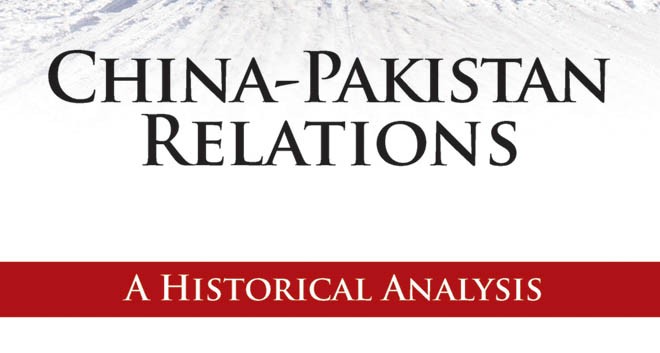
The Pak-China relationship has never come under threat, although there were many points when it raised doubts in Pakistani minds

Pakistan and China’s relationship seems to be immune to certain predominant traits of the Pakistan polity. Religious factions remain mute when news about discrimination against Muslims and severe curbing of their religious freedoms continuously emerges.
According to the author the distinctive nature of the relationship has been that China has dealt with Pakistan on a long-term perspective. He contrasts this relationship with the relationship of the Soviet Union and Pakistan. The Chinese relationship did not sour to the same extent when Pakistan joined the anti communist blocs in the 1950s. The Soviet Union reacted much more belligerently than China ever did. In the case of terrorism, even where it was clear that groups in Pakistan were facilitating the terrorists in Xinjiang Province and later when Chinese personnel were targeted in Pakistan, China maintained restraint while expressing concerns privately in order to prevent a public fallout.
China also established vast links with Pakistan polity during every change of government, therefore the Pak-China relationship was not thwarted by alterations in Pakistan’s leadership. In the defence sector, they have entered into joint production with Pakistan, granted licenses, trained Pakistani technicians and transferred technology. They have a dispute settlement mechanism to address all their issues privately, and moreover China has never tried to dictate policy to Pakistan.
The basis of the Pak-China relationship has been multiple; this includes geographical proximity, Pakistan’s geo-strategic location, China’s place in Pakistan’s national security strategy, an early and mutually agreed upon border settlement, the Islamic world factor, the US factor, the role of the armed forces, a regular exchange of visits, the role of the media, and above all factors, what binds all this together has been the Indian element. It should not be forgotten that despite overtures and tensions it was the war between India and China that ushered in the current phase of the relationship that has since stayed its course.
The relationship never came under threat, although there were many points when it raised doubts in the Pakistani minds. One instance of this was the growing relationship of the Indians and Chinese, particularly in the field of trade when the volume of goods exchanged reached astounding levels. Another instance was when the commercial relationship between China and Pakistan resulted in staggeringly cheap imports which led to unfair treatment of the local Pakistani industry.
The programmes of nuclear support have been a crucial bedrock of the relationship. Since Pakistan’s bomb was an answer to the Indian bomb, the basis had a strong underpinning of a balanced approach between India and Pakistan. This suited the Chinese more than dealing with India directly.
On the other hand, light should be shed upon Pakistani links with terrorists in the Xinjiang region for it has been Pakistan’s policy to support militancy due to the situation in Jammu and Kashmir. Both varieties of terrorists (those in Xinjiang and those in Kashmir) have links, even though the state terms some as "good" and others as "bad". This two-handed approach does not curry favour with countries that are dealing with the menace head on.
According to the author China is also investing in other parts of the world since its role has expanded from a country which was involved with immediate neighbours to a country on the verge of assuming a leading role in the international arena. Though China has never forsaken Pakistan, the unanimity of views on other issues has gradually been diverging. Its relationship with India is not contingent upon its relationship with Pakistan, China’s growing trade relations with India which have reached a staggering level is an indication of this.
The inundation of cheap Chinese goods and the gradual incapacitation of the Pakistani industry to compete has been a factor which has not been emphasised enough by the author. The adverse impact and the lack of willingness or the incapability of stopping this inflow has worked against the Pakistani desire to have greater foreign investment which in turn will improve domestic industrial production.
But the Indian factor has kept Pakistani mouths shut and lips sealed, and CPEC has furthered the policy of seeing everything with rose-tinted glasses despite apprehensions about the relationship’s extraterritorial nature. It has been hoped that as China moves into more sophisticated areas of production the basic industry would move to areas that are less developed with ample and cheap labour, though some coal fired power projects could be a move in that direction as the Chinese, being now more conscious of the environment are moving towards cleaner energy.
China also wants to be seen as a power that respects its international obligations and seeks a future that is free of violence and tension, in line with its aspirations of assuming world leadership. The border agreement between China and Pakistan has never been made public as no debate was conducted when it happened, it was signed to by a non-democratically elected government of Pakistan.